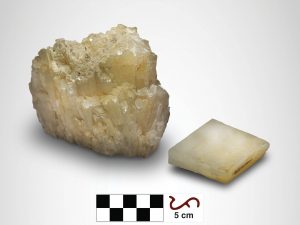Metallic minerals play a crucial role in various industries, serving as the backbone of modern civilization. From construction and manufacturing to technology and energy production, these minerals are indispensable. In this blog post, we will delve into the diverse applications of metallic minerals, exploring their significance and impact on different sectors.
- Construction Industry:
Metallic minerals, such as iron ore, copper, and aluminum, are extensively used in the construction industry. Iron ore is a primary component in the production of steel, which is vital for constructing buildings, bridges, and infrastructure. Copper is employed in electrical wiring and plumbing systems, while aluminum finds its place in window frames, roofing, and cladding. - Manufacturing Sector:
The manufacturing sector heavily relies on metallic minerals for the production of a wide range of goods. Steel, derived from iron ore, is utilized in the manufacturing of automobiles, machinery, appliances, and tools. Additionally, metallic minerals like zinc, nickel, and tin are crucial for the production of alloys, coatings, and plating, enhancing the durability and functionality of various products. - Electronics and Technology:
In the era of technological advancements, metallic minerals play a pivotal role in the electronics industry. Minerals like gold, silver, and copper are excellent conductors of electricity, making them essential for the production of circuit boards, connectors, and wiring. Moreover, rare earth minerals, including neodymium and dysprosium, are vital for manufacturing magnets used in speakers, hard drives, and electric vehicle motors. - Energy Production:
Metallic minerals contribute significantly to the energy sector, particularly in renewable energy technologies. For instance, copper is a key component in solar panels and wind turbines, facilitating the conversion of sunlight and wind into electricity. Additionally, minerals like uranium and thorium are used in nuclear power generation, providing a reliable and sustainable energy source. - Transportation and Aerospace:
The transportation industry heavily relies on metallic minerals for the production of vehicles, aircraft, and spacecraft. Aluminum, due to its lightweight and corrosion-resistant properties, is extensively used in the manufacturing of cars, airplanes, and rockets. Titanium, known for its high strength-to-weight ratio, finds applications in aircraft frames and engine components, ensuring safety and fuel efficiency.
Conclusion:
The applications of metallic minerals are vast and diverse, permeating various industries and sectors. From construction and manufacturing to electronics, energy production, and transportation, these minerals are indispensable for modern society's functioning and progress. Understanding their significance and harnessing their potential is crucial for sustainable development and technological advancements in the future.







+ There are no comments
Add yours